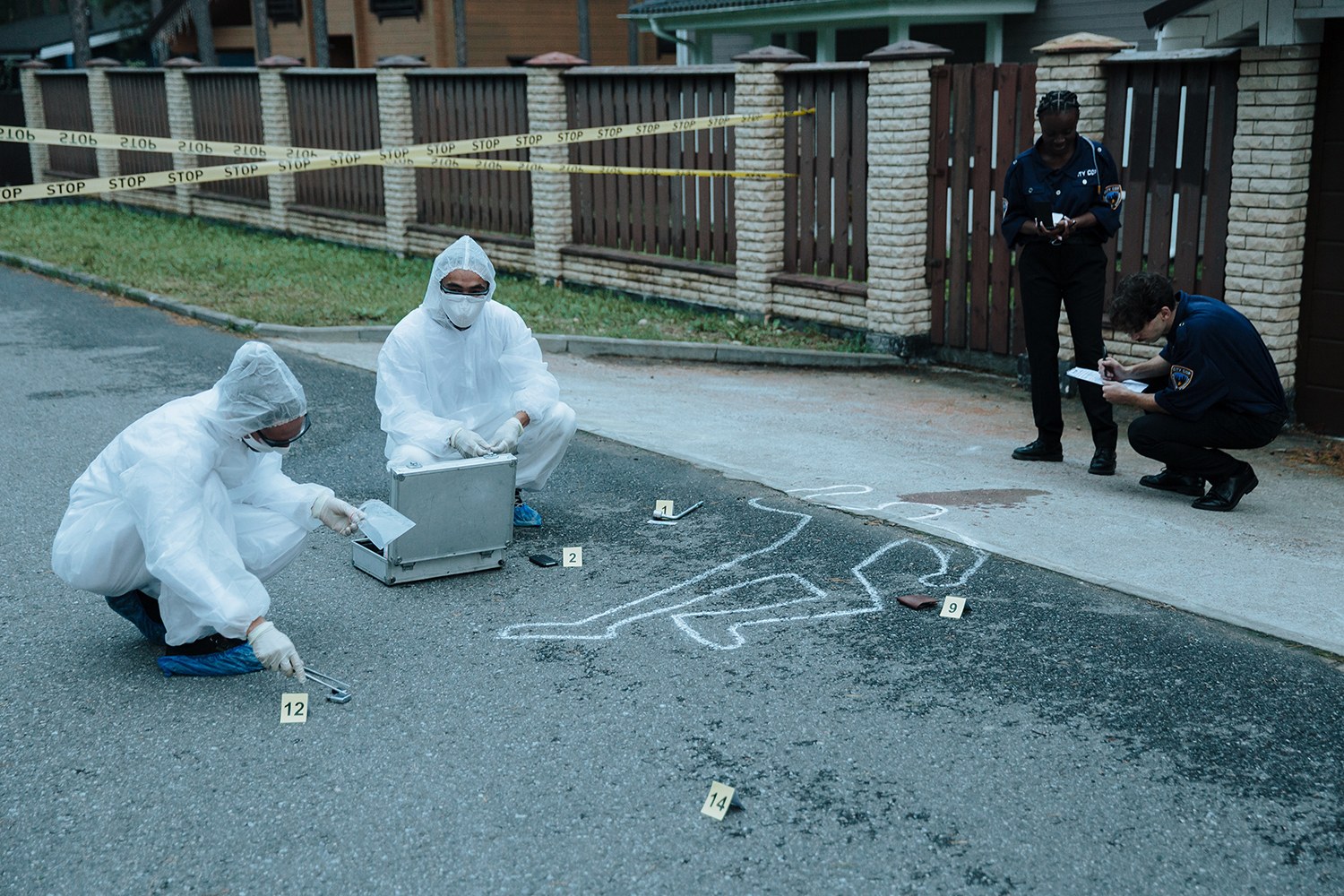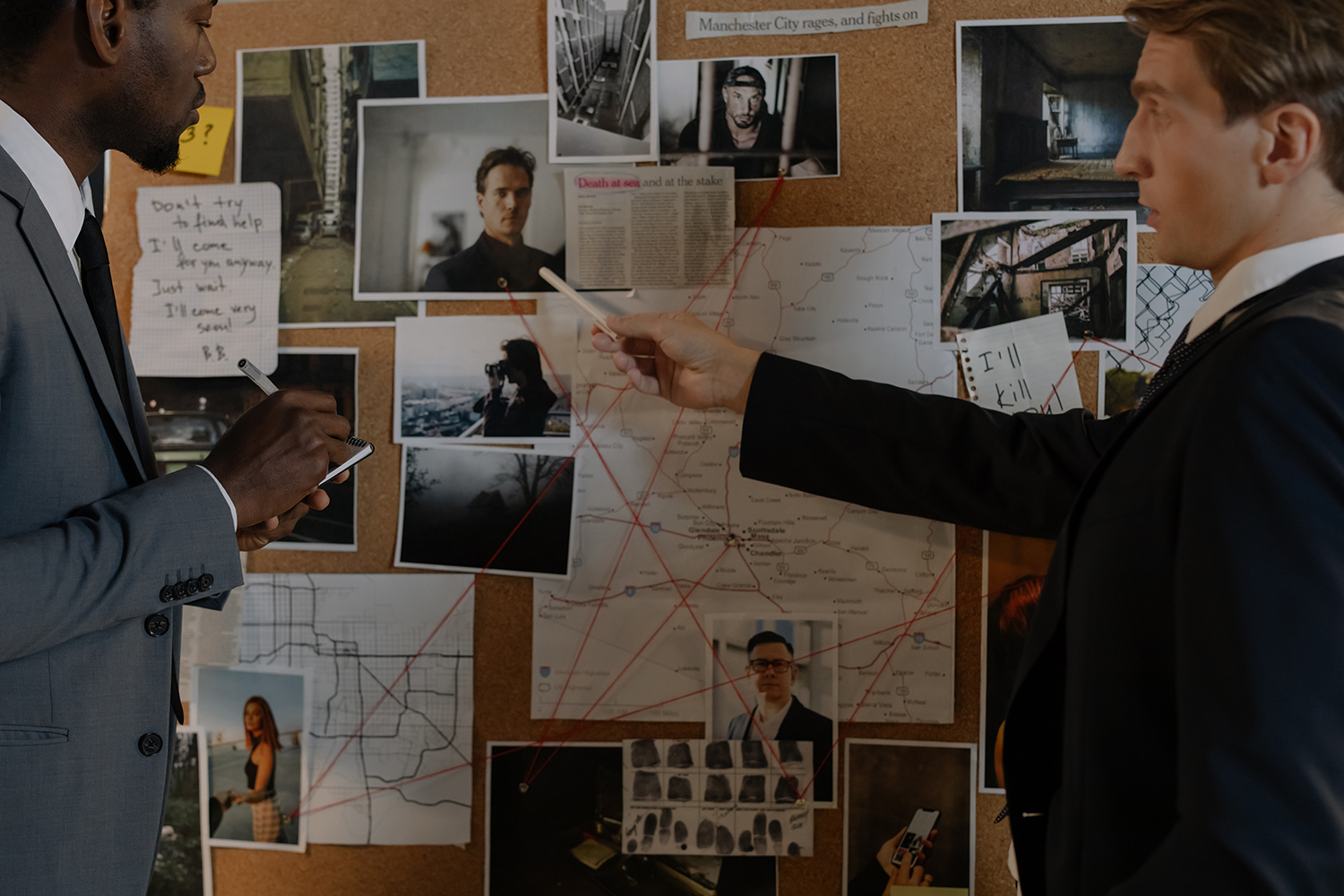The Crucial Role of a Killer Hunting Team
In the world of law enforcement, detectives have a crucial role in catching a killer. They are the ones who take on the most difficult and complex cases, requiring them to investigate and solve crimes that are mysterious, perplexing and even seemingly impossible. From analyzing evidence to interviewing witnesses, a detective’s job is never easy, but their investigative skills and critical thinking are essential to bring justice for the victims and their families. In this article, we will explore the role of a detective and how their work contributes to catching a killer.
Analyzing Evidence
One of the most significant responsibilities of a detective in solving crimes is gather and analyzing evidence. The evidence can range from fingerprints, DNA, hair fibers, shoe marks, or any other physical evidence found at the crime scene. Detectives must examine and analyze the evidence and reconstruct the crime scene to get a better picture of what happened. They use forensic science and other investigative techniques to gather even the smallest leads that may help in solving the case. These leads are crucial, and detectives follow them rigorously to build a strong case to identify the perpetrator.
Interviewing Witnesses
Another important job of a detective is to interview witnesses who may have seen or heard something related to the crime. Detectives must develop a trusting relationship with the witness to get accurate information from them. Effective communication skills, patience, and empathy are essential in this task since witnesses can be hesitant or fearful in coming forward. Detectives listen carefully to what the witness has to say, ask relevant questions, and test their credibility to get a clear picture of what transpired. Sometimes, witnesses can provide vital clues to the crime that were previously unknown to the detectives, and these can lead to a breakthrough in the case.
Performing Surveillance
Detectives also have to perform surveillance, which involves monitoring and flowing a suspect or suspects closely. Surveillance can be done through various means, including stakeouts, video surveillance, and tracking devices. Surveillance is a dangerous and challenging task as detectives must remain undetected while keeping a close eye on the suspects. However, it is an integral part of an investigation as it helps detectives understand the suspect’s daily routine, movements, and interactions, leading to valuable clues about their involvement in the crime.
Collaborating with other departments
The role of a detective does not end at investigating and solving the crime. They must coordinate with other departments in the law enforcement agency. Such as the forensic department, cyber-crime unit, and the district attorney’s office. Collaboration between departments is necessary as each unit has their expertise, which can be utilized to solve the case. For instance, the forensic department can help analyze the biological evidence while the cyber-crime unit can assist in the tracking digital footprints that may help to solve the case.
Serving as a liaison with the community
Finally, a detective also serves as a liaison with the community, providing updates on the case and assuaging concerns and fears. Detectives often have press conferences or meetings with community members to assure them that they are doing everything possible to solve the case. They also encourage people to come forward with any information they may have, which can be crucial in solving the case. This aspect of a detective’s job is just as crucial as the other investigative processes as it builds the bridge between the community, the police force and ensures a transparent investigation process.
In conclusion, the role of a detective in catching a killer is challenging and critical. They have to perform various investigative processes from analyzing evidence, interviewing witnesses, performing surveillance, collaborating with other departments, and serving as a liaison with the community to solve crimes. Detectives have a huge responsibility to bring justice to the victims and their families as well as protect the community from further harm.
The Crucial Role of a Killer Hunting Team
In the world of law enforcement, detectives have a crucial role in catching a killer. They are the ones who take on the most difficult and complex cases, requiring them to investigate and solve crimes that are mysterious, perplexing and even seemingly impossible. From analyzing evidence to interviewing witnesses, a detective’s job is never easy, but their investigative skills and critical thinking are essential to bring justice for the victims and their families. In this article, we will explore the role of a detective and how their work contributes to catching a killer.
Analyzing Evidence
One of the most significant responsibilities of a detective in solving crimes is gather and analyzing evidence. The evidence can range from fingerprints, DNA, hair fibers, shoe marks, or any other physical evidence found at the crime scene. Detectives must examine and analyze the evidence and reconstruct the crime scene to get a better picture of what happened. They use forensic science and other investigative techniques to gather even the smallest leads that may help in solving the case. These leads are crucial, and detectives follow them rigorously to build a strong case to identify the perpetrator.
Interviewing Witnesses
Another important job of a detective is to interview witnesses who may have seen or heard something related to the crime. Detectives must develop a trusting relationship with the witness to get accurate information from them. Effective communication skills, patience, and empathy are essential in this task since witnesses can be hesitant or fearful in coming forward. Detectives listen carefully to what the witness has to say, ask relevant questions, and test their credibility to get a clear picture of what transpired. Sometimes, witnesses can provide vital clues to the crime that were previously unknown to the detectives, and these can lead to a breakthrough in the case.
Performing Surveillance
Detectives also have to perform surveillance, which involves monitoring and flowing a suspect or suspects closely. Surveillance can be done through various means, including stakeouts, video surveillance, and tracking devices. Surveillance is a dangerous and challenging task as detectives must remain undetected while keeping a close eye on the suspects. However, it is an integral part of an investigation as it helps detectives understand the suspect’s daily routine, movements, and interactions, leading to valuable clues about their involvement in the crime.
Collaborating with other departments
The role of a detective does not end at investigating and solving the crime. They must coordinate with other departments in the law enforcement agency. Such as the forensic department, cyber-crime unit, and the district attorney’s office. Collaboration between departments is necessary as each unit has their expertise, which can be utilized to solve the case. For instance, the forensic department can help analyze the biological evidence while the cyber-crime unit can assist in the tracking digital footprints that may help to solve the case.
Serving as a liaison with the community
Finally, a detective also serves as a liaison with the community, providing updates on the case and assuaging concerns and fears. Detectives often have press conferences or meetings with community members to assure them that they are doing everything possible to solve the case. They also encourage people to come forward with any information they may have, which can be crucial in solving the case. This aspect of a detective’s job is just as crucial as the other investigative processes as it builds the bridge between the community, the police force and ensures a transparent investigation process.
In conclusion, the role of a detective in catching a killer is challenging and critical. They have to perform various investigative processes from analyzing evidence, interviewing witnesses, performing surveillance, collaborating with other departments, and serving as a liaison with the community to solve crimes. Detectives have a huge responsibility to bring justice to the victims and their families as well as protect the community from further harm.


